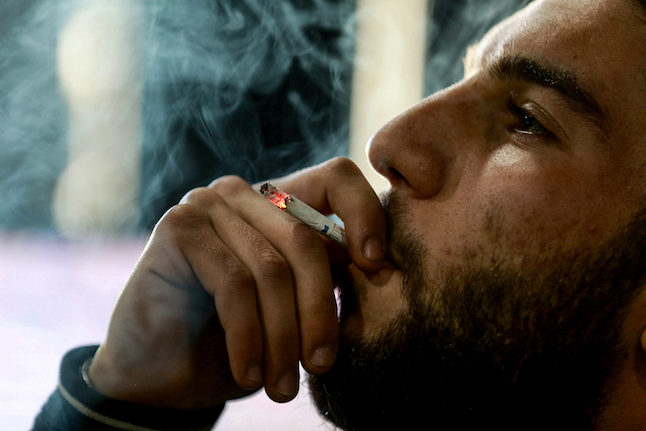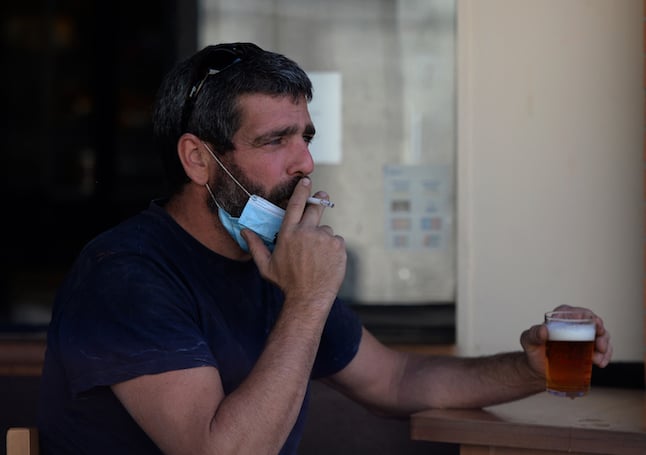The bill, put to the Swiss parliament on Wednesday, will allow the sale of e-cigarettes with nicotine as long as they are subject to the same restrictions as traditional cigarettes, which will also be tightened under the bill.
The minimum age for the purchase of both cigarettes and e-cigarettes will be set at 18 – the first time the issue has been legislated for at a federal level – while restrictions on advertising will be brought in.
Though the proposed law doesn’t go as far as many European countries, its provisions are “balanced”, the Federal Office of Public Health (BAG) said in a statement.
At the moment nicotine-based inserts for e-cigarettes cannot be purchased in Switzerland.
In authorizing their sale, with the specified restrictions, the government would offer smokers a less harmful alternative without treating the e-cigarette as a therapeutic product, health minister Alain Berset told the press including news agency ATS.
The law would also allow Switzerland to regulate the content of e-cigarette products, including setting a maximum nicotine level and dictating the substances used in the products.
Even though they are considered less harmful to health, e-cigarettes should nevertheless be subject to the same restrictions as traditional cigarettes, states the bill, including banning their use in the same places.
The government also wishes to harden legislation to protect young people, including bringing in a nationwide age minimum for the purchase of cigarettes of 18.
Currently there is no federal law on the minimum age for tobacco sales, which is determined at cantonal level.
At present ten cantons have an age minimum of 18, while 12 cantons still authorize the sale of cigarettes to people over 16, and four cantons have no legislation at all.
Given that 57 percent of smokers pick up the habit before the age of 18, the protection of young people “plays a central role” in the bill, said BAG.
The bill also proposes a ban on the advertising of smoking products in public spaces, in cinemas, in the written press and online.
Free samples of smoking products should be banned, says the bill, however direct promotion by ‘hostesses’ in bars would still be allowed.
Tobacco companies will still be allowed to sponsor big national festivals, but not international events.
Reaction to the bill has been mixed.
The Swiss Medical Federation (FMH) claims the new proposals do not go far enough.
In a statement it called for a total ban on all publicity, promotion and sponsorship related to tobacco products and e-cigarettes.
“Advertising for tobacco products should be banned in every area of life, particularly to protect children and adolescents,” it said.
Unsurprisingly, tobacco companies and several economic associations have said the proposed restrictions are disproportionate and are not sufficiently justified by health reasons.
However according to BAG, the new law would save the economy between 400 and 600 million francs a year due to the reduction in the associated costs of smoking-related diseases and deaths.
Smoking is Switzerland’s principal cause of premature death and costs the economy 10 billion francs a year, according to the FMH.
Some 9,500 people in the country die each year from the effects of smoking, according to BAG.
In 2014 a quarter of the Swiss population were smokers, a level that hasn’t changed much since 2011.




 Please whitelist us to continue reading.
Please whitelist us to continue reading.
Member comments